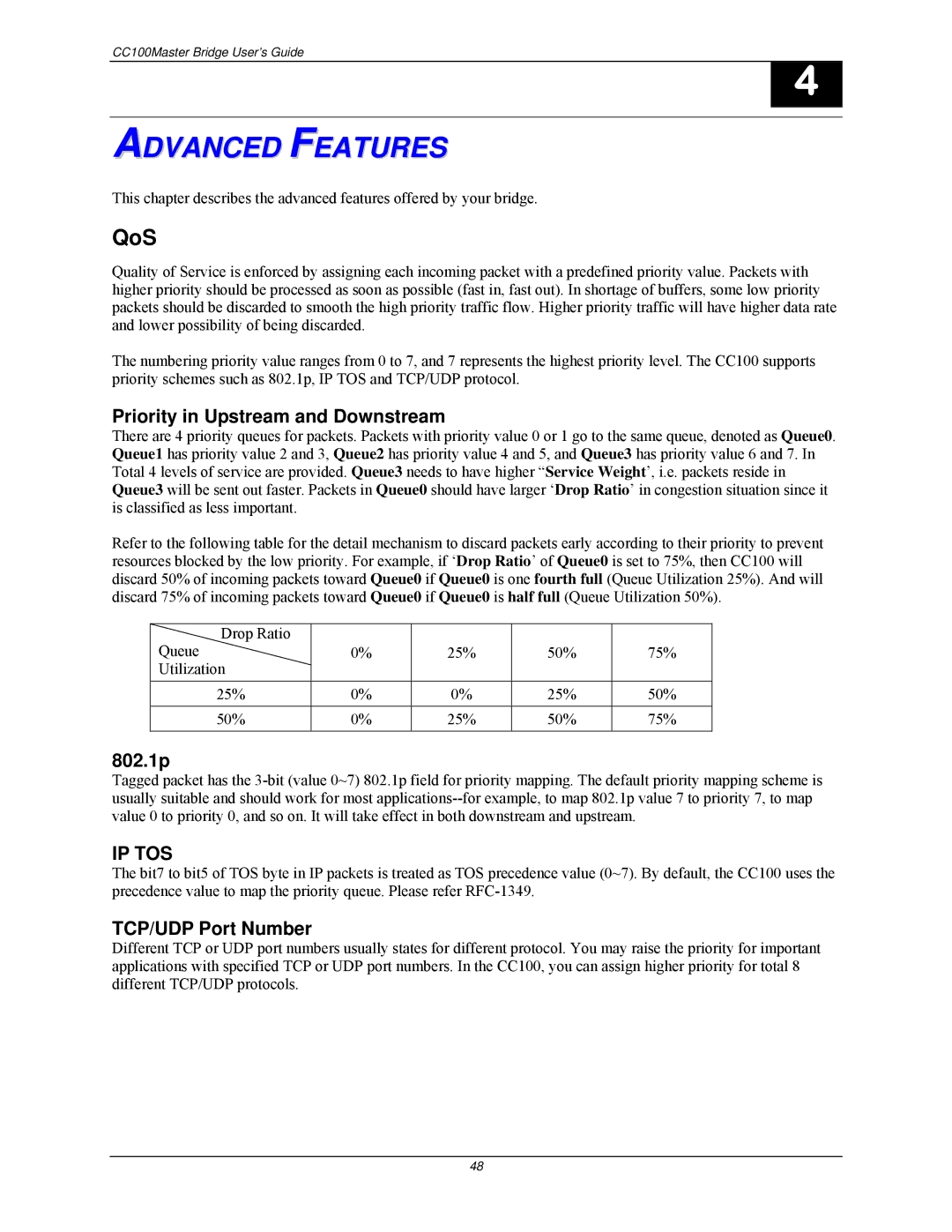
CC100Master Bridge User’s Guide
4
ADVANCED FEATURES
This chapter describes the advanced features offered by your bridge.
QoS
Quality of Service is enforced by assigning each incoming packet with a predefined priority value. Packets with higher priority should be processed as soon as possible (fast in, fast out). In shortage of buffers, some low priority packets should be discarded to smooth the high priority traffic flow. Higher priority traffic will have higher data rate and lower possibility of being discarded.
The numbering priority value ranges from 0 to 7, and 7 represents the highest priority level. The CC100 supports priority schemes such as 802.1p, IP TOS and TCP/UDP protocol.
Priority in Upstream and Downstream
There are 4 priority queues for packets. Packets with priority value 0 or 1 go to the same queue, denoted as Queue0. Queue1 has priority value 2 and 3, Queue2 has priority value 4 and 5, and Queue3 has priority value 6 and 7. In Total 4 levels of service are provided. Queue3 needs to have higher “Service Weight’, i.e. packets reside in Queue3 will be sent out faster. Packets in Queue0 should have larger ‘Drop Ratio’ in congestion situation since it is classified as less important.
Refer to the following table for the detail mechanism to discard packets early according to their priority to prevent resources blocked by the low priority. For example, if ‘Drop Ratio’ of Queue0 is set to 75%, then CC100 will discard 50% of incoming packets toward Queue0 if Queue0 is one fourth full (Queue Utilization 25%). And will discard 75% of incoming packets toward Queue0 if Queue0 is half full (Queue Utilization 50%).
Drop Ratio |
|
|
|
|
Queue | 0% | 25% | 50% | 75% |
Utilization |
|
|
|
|
25% | 0% | 0% | 25% | 50% |
|
|
|
|
|
50% | 0% | 25% | 50% | 75% |
802.1p
Tagged packet has the
IP TOS
The bit7 to bit5 of TOS byte in IP packets is treated as TOS precedence value (0~7). By default, the CC100 uses the precedence value to map the priority queue. Please refer
TCP/UDP Port Number
Different TCP or UDP port numbers usually states for different protocol. You may raise the priority for important applications with specified TCP or UDP port numbers. In the CC100, you can assign higher priority for total 8 different TCP/UDP protocols.
48
